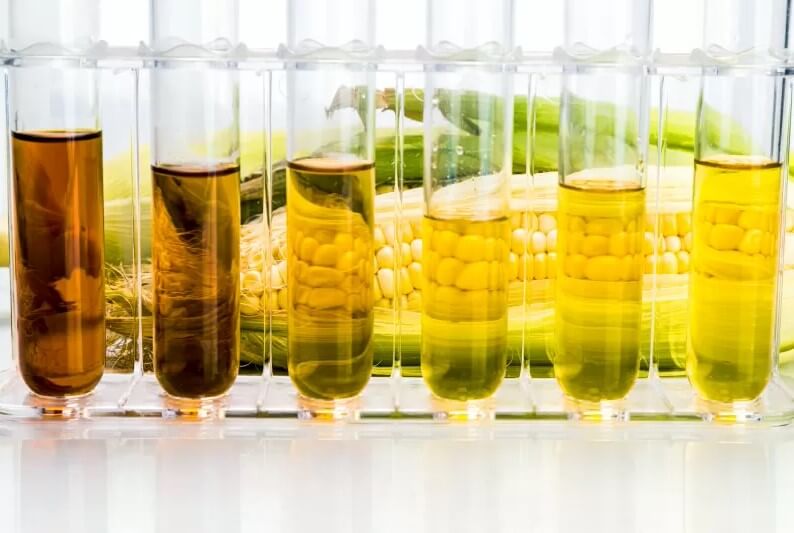Fuel ethanol feedstocks include grains and crops with high starch and sugar content such as corn, sorghum, barley, sugar cane, and sugar beets. Ethanol can also be made from grasses, trees, and agricultural and forestry residues such as corn cobs and stocks, rice straw, sawdust, and wood chips.
Ethanol is made from these feedstocks in several ways.
Food Industry Ethanol
For manufacturers of commercial alcohol, and Food Industry.
Pharmaceutical Ethanol
For the production of medicines, medical wipes, skin care products or as a solvent in the production process, and as a disinfectant.
Industrial Ethanol
Used in the production of perfumes, deodorants, cologne water, hairspray but also as a solvent, fuel or disinfectant.
Bioethanol
Used for the production of bio-fuels.
Fermentation is the most common method for producing fuel ethanolThe most common ethanol production processes today use yeast to ferment the starch and sugars in corn, sugar cane, and sugar beets. Corn is the main feedstock for fuel ethanol in the United States because of its abundance and low price. The starch in corn kernels is fermented into sugar, which is then fermented into alcohol.
Sugar cane and sugar beets are the most common feedstocks used to make fuel ethanol in other parts of the world. Because alcohol is made by fermenting sugar, sugar crops are the easiest ingredients to convert into alcohol. Brazil, the world’s second-largest fuel ethanol producer after the United States, makes most of its fuel ethanol from sugar cane. Most of the cars in Brazil can run on pure ethanol or on a blend of gasoline and ethanol.
Most motor gasoline now contains fuel ethanol
Ethanol use increased temporarily during World War II when oil and other resources were scarce. In the 1970s, interest in ethanol as a transportation fuel was revived as oil embargoes, rising oil prices, and growing dependence on imported oil increased interest in alternative fuels. Since that time, ethanol use and production has been encouraged by tax benefits and by environmental regulations that require cleaner-burning fuels.


